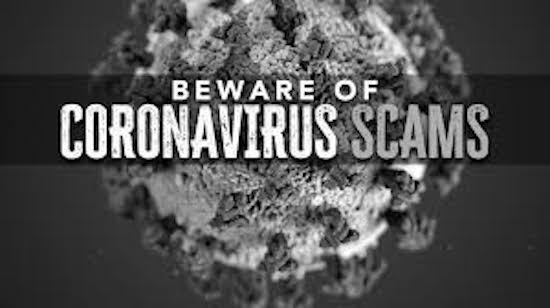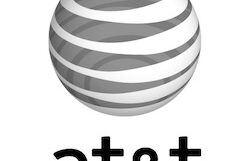SCAM ALERT! – Coronavirus Scams and Domino’s Pizza
Cyber criminals are always at work. They are working and scamming from home like everybody else. Their latest scam involves; what else? The Coronavirus.
The number of scams that are using Coronavirus as a lure have become uncountable. They are everywhere, in your email, on your phone, in text messages, in your mailbox, on Amazon.com, even at your front door if you dare open it for anybody.
And they use whatever method they possibly can to gain your trust. Hackers are already impersonating the UN’s health agency to carry out a variety of scams. These include account takeovers to phony donation requests and the spread of malware. The FTC is also warning of “spoofed” emails, text messages, and phone calls that claim to be from the Centers for Disease Control (CDC).
There is no cure or treatment for Coronavirus!
But scammers have set up fake Coronavirus related websites all over the internet. They claim to offer all kinds of imaginary cures, natural and pharmaceutical, vaccines, testing kits, and prophylactic items in short supply such as face masks. Don’t fall for it!
These phony websites are trying to steal your money and card information. You could also see your computer infected with malware. It gets worse. Some of the crap these sites sell could kill you. They may send you products that are substandard in quality (used, damaged or expired) or outright dangerous as in the case of the “Miracle Mineral Solution” and other sodium chlorite treatments that are being sold online as cures to the Coronavirus. Again, there is no cure or treatment for Coronavirus.
Yes, they are selling crap on Amazon!
Scammers and crooks of every type are using legitimate websites to sell this crap. Crooks are taking advantage of platforms such as Amazon, Walmart, AliExpress, Overstock, Newegg, OfferUp, etc. to gauge consumers.
Unsavory sellers on these platforms market tainted, damaged, used, expired and otherwise unsafe products that are in high demand because of the Coronavirus. They will offer you bogus rebates and return policies. You won’t get anything like a refund or rebate. Money gone!
Fake sellers may also infiltrate online forums, like Facebook groups, and other informal marketplaces where they can directly rip off consumers by collecting payments but never shipping any products. There is an especially powerful warning you should keep in mind when shopping online; Caveat Emptor! Look it up.
Social Media Scams and Misinformation
Nothing kills like bad information. Social media users need to be wary of scams and misinformation from suspect sources.
Like any crises, in order to be safe and survive you need accurate and reliable information. This Coronavirus situation is simply covered with misinformation. Like flies on a carcass.
See 5G cellular antennas cause Coronovirus
Much of the misinformation may be unintentional. But you have to be on the look out for conspiracy theories and rumors and anecdotal garbage. Misinformation can have its roots unethical blogs and pseudo-news sites to drive up their page views. One thing about the internet; there are plenty of websites that spew half-assed, unsubstantiated, mythical crap. You need to be aware of that.
The media watchdog group NewsGuard launched a Coronavirus misinformation tracking center and recently put together this list of the worst offenders.
But there two scams in particular you need to look out for. First is the fake fundraising scam. These scams come from either a supposed victim of the Coronavirus or a charity group claiming to be helping victims. They can be very convincing. These scam artists use everything to pull at your heart strings including stories and images of real people and they often utilize legitimate fundraising platforms like GoFundMe to collect the donations.
AARP’s guide on how to spot fake charities is worth taking a look at. There are a lot of real charities so stick with those you know or the Red Cross.
The second threat warning comes straight from the Securities and Exchange Commission. The SEC is warning investors that criminals are using social media to promote microcap stocks. They’re claiming that certain products or services can help prevent or treat Coronavirus. These are commonly known as pump-and-dump scams that could cost investors millions annually. Go back and look at the first topic heading.
Voter Suppression
This will be of special interest to black people. Coronavirus misinformation is being used to suppress voters.
U.S. officials suspect that foreign adversaries like Russia are manipulating the public to suppress voter turnout during the primaries and general election.
According to the U.S. State Department it has already identified two million tweets that are pushing conspiracy theories. Many of these tweets show evidence of “inauthentic or coordinated activity,” suggesting foreign government involvement.
Adversary governments are using social media bots to spread disinformation about local infection rates, the risk of transmission, incidents at or near polling stations, or fake alerts from public agencies. These are the methods used to stoke fear in order to depress voter turnout and increase anger toward elected officials.
For black people this is just sinister. We have enough problems with our fellow American’s attempting to suppress the black vote. Now the nation’s adversaries are joining the game.
Use your head. Stick to the most trusted sources of information on Coronavirus like the Center for Disease Control (CDC) and the World Health Organization (WHO).
A few more tips you need to remember; don’t provide information in unsolicited phone calls, emails, or texts. Don’t click on links or download attachments from any of these messages. Don’t buy items from unfamiliar sites or apps. Always use a credit card when making online transactions, as this will protect you better than a debit card.
Domino’s Pizza
No, you’re not going to get a two free pizzas from Domino’s. Domino’s pizza chain is not offering coupons for two free large pizzas to social media users who fill out an online survey. Its a scam to steal your information.
Facebook users saw this ad that supposedly offered a coupon for two free large pizzas.

People completing the questionnaire were then required to click a button to share the “offer” with their Facebook friends before they could retrieve their coupons. Those who complied by spamming their friends were then allowed to click a “Receive the Coupon” button. Never happened.
These scam often extracts personal information such as email addresses, telephone numbers, dates of birth, and even sometimes credit card numbers. These scam can be very damaging. By clicking on the link you could be downloading malware into your computer. Beware of getting something for nothing. These scams can be hard to resist so you are warned to check the source of the ad. In this case visit the Domino’s website.






